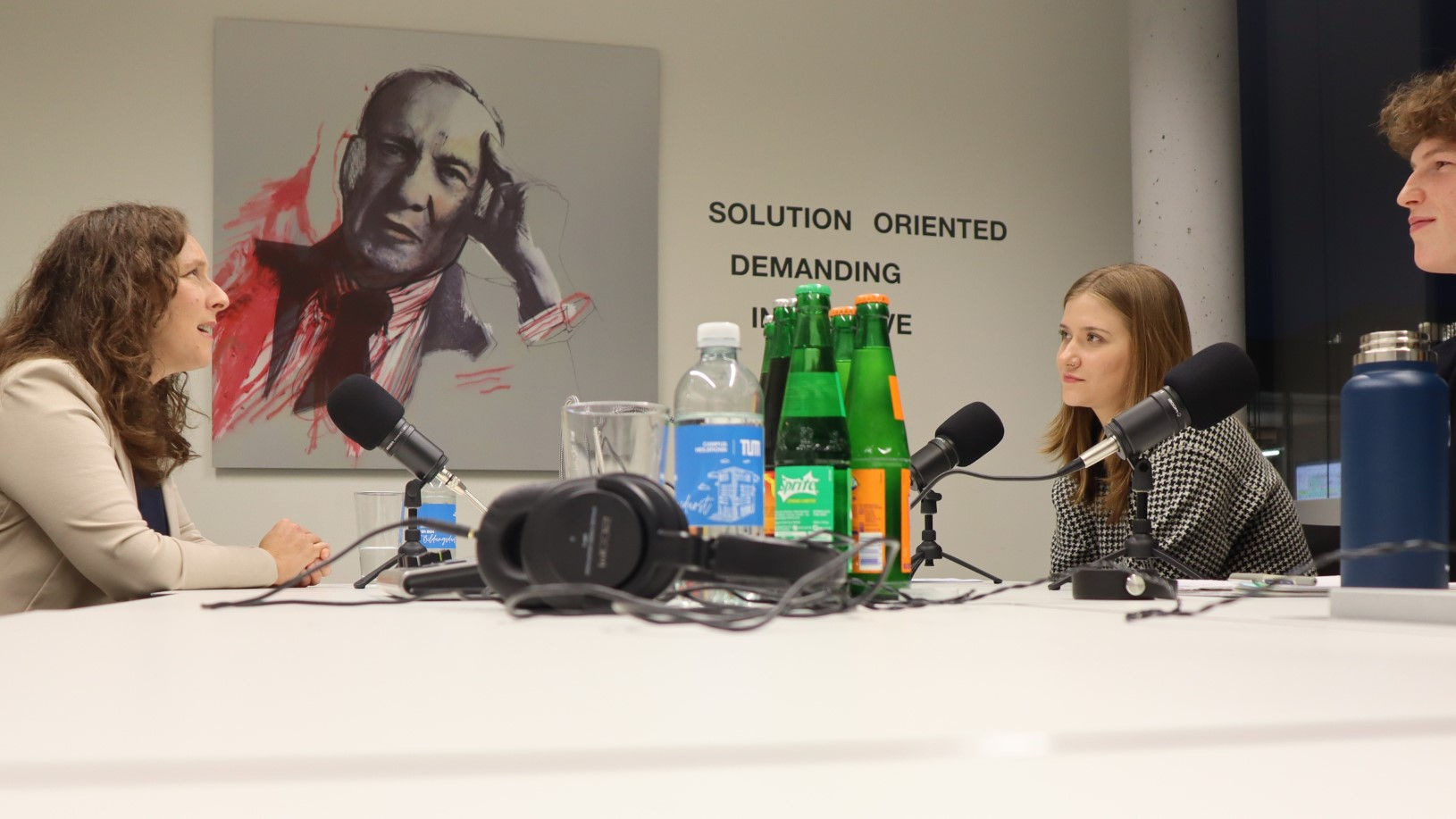
News at TUM Campus Heilbronn

Suzanna Randall may be on the verge of becoming the first German astronaut to fly into space. At the "Learning from Legends" event series at TUM Campus Heilbronn, she talked about the path that made her a hopeful in space travel. "My second dream job was to be a pirate," she recalled with a laugh. "I just wanted to travel and see the world."
Now, as an astrophysicist and budding astronaut, Randall faces a different challenge: space. Her path to becoming an astronaut was not easy until she was finally selected by the "Die Astronautin" initiative.
A myth that Randall dispels: "You don't have to be super fit to be an astronaut. Versatility and health are more important." Her training included isolation training in a cave, underwater training in uncomfortable spacesuits and drawing blood herself. "What I enjoyed most were the parabolic flights where we simulated weightlessness," she reveals.
Randall is physically and mentally ready, but still lacks financial support. "If we had the money tomorrow - we're talking about around 50 million euros - we could fly in about nine to twelve months," she says. As part of the "Die Astronautin" initiative and not an ESA employee, the funding is largely in her hands.
In an open question and answer session, she also reveals her favorite planet: Neptune. "That's why my cat is called Triton, after the planet's largest moon." She emphasizes how important it is to be a role model for young women, just as NASA astronaut Sally Ride was for her in 1983.

A world in which people reflect on the norms, values, ideals and goals that unite them - that is the vision of the Global Ethic Institute at the University of Tübingen. The guest speakers at the panel discussion "The future of debate culture" as part of the block seminar "Ethical and moral aspects of intercultural corporate management" organized by the TUM Campus Heilbronn were euphoric: "We learn just as much from the seminar as the students, perhaps even more," said Dr. Bernd Villhauer, Managing Director of the Institute, at the event in mid-December at the Insel-Hotel in Heilbronn.
Anna Tomfeah, Head of Press and Public Relations, continues: "At TUM, globalism prevails in a small space." This makes it noticeable what it means to do business fairly and sustainably. And Dr. Friedrich Glauner, Permanent Fellow in the Research Department, is also enthusiastic: "25 people from very different countries and cultures, who are aware that we are living in situations of major change, are discussing here how we can deal responsibly with the circumstances."
Power is shifting
Discussing with one another – this seems to be desperately needed at a time when people are always making their voices heard, but at the same time many see freedom of expression threatened by excessive political correctness. A shift in power can be seen, says Tomfeah: For centuries, public discourse was determined by political and economic elites as well as traditional media outlets. In the digital age, this no longer applies: in business, employees and customers are becoming co-communicators, in the media, newspapers are being challenged by bloggers and YouTubers, and in politics by alternative counter-publics. One consequence: "Some people who are allowed to speak overdo it and want their voice to be heard everywhere or especially loudly. Many are driven by the desire to be allowed to express their opinion. But we actually tend to learn more by listening than shouting."
The changed power relations are also evident in art and science: "Performing a piece and presenting it to an audience is interpreted by many circles as lecturing from above with a gesture of domination. This restricts us in our aesthetic practice," reports Dr. Mjriam Meuser, for example, on her experiences as head dramaturge at the Heilbronn Theatre. "In order for many people to develop a lasting interest in scientific topics and for trust in research to be strengthened, we need more than just imparting knowledge. However, this challenge holds many opportunities," says Dr. Daniel Thorpe, Manager Science Dome & Observatory at the "experimenta" in Heilbronn.
Being patient with ourselves
"How can we create an environment in which people understand that we don't comprehend most of reality, but that we need to interact with each other in a positive way?" asks Glauner the crucial question. "We have to make people – the children already – curious and not give them the feeling that they are dealing with an enemy," demands Villhauer. Tomfeah takes a similar view: "If we want to stay in touch, we have to deal with what kills curiosity."
At the end, there are conciliatory tones: "We should be patient with ourselves if we don't always find quick solutions," says Villhauer. Remaining patient and accepting that one's own world view is not the only correct one – the participants in the block seminar have clearly internalized this. This is also shown by the statement from a Chinese student: "The most valuable thing the course has taught me is to stop being self-centered.”
